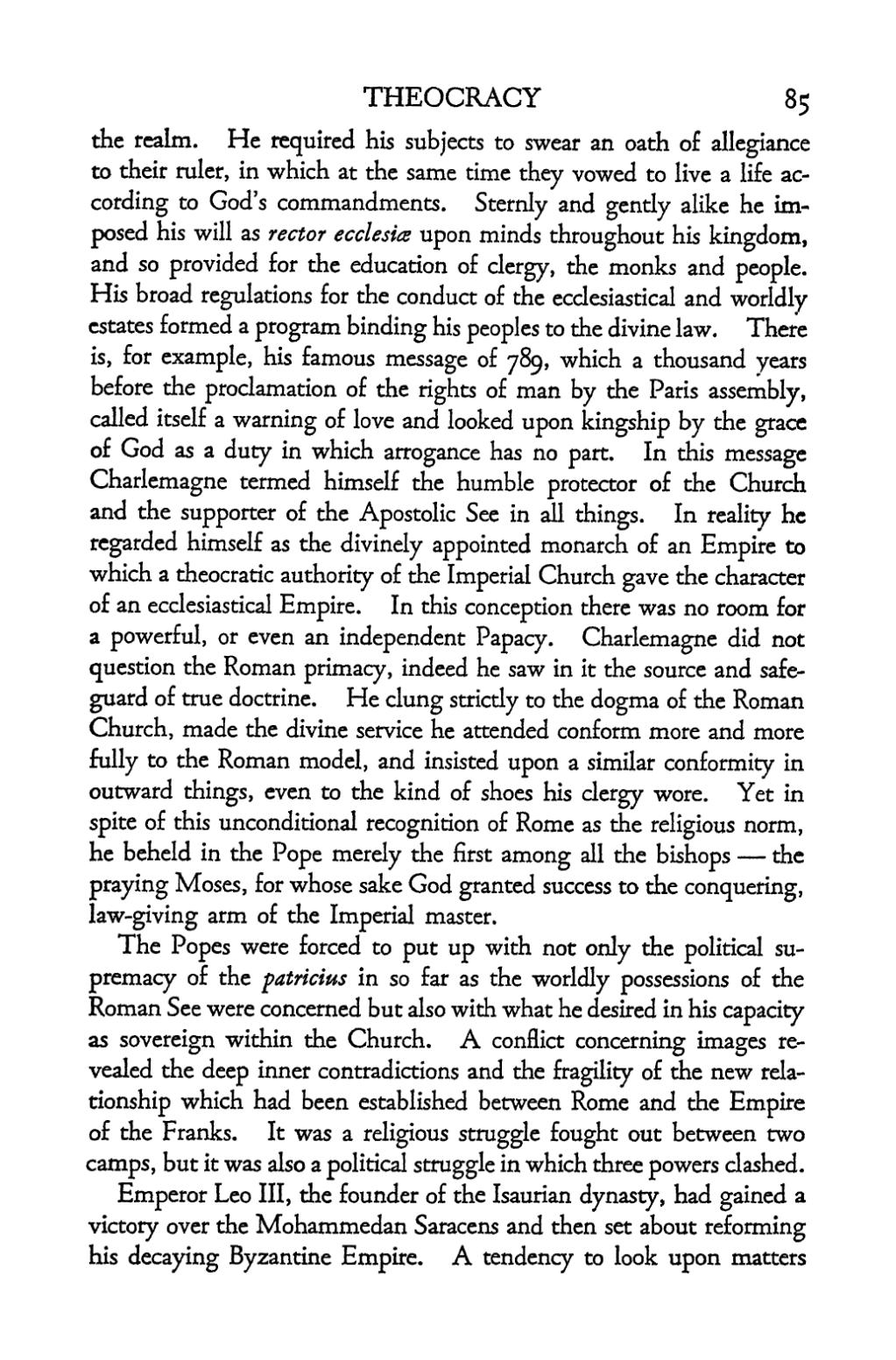85
the realm. He required his subjects to swear an oath of allegiance to their ruler, in which at the same time they vowed to live a life ac- cording to God's commandments. Sternly and gently alike he im- posed his will as rector ecclesiee upon minds throughout his kingdom, and so provided for the education of clergy, the monks and people. His broad regulations for the conduct of the ecclesiastical and worldly estates formed a program binding his peoples to the divine law. There is, for example, his famous message of 789, which a thousand years before the proclamation of the rights of man by the Paris assembly, called itself a warning of love and looked upon kingship by the grace of God as a duty in which arrogance has no part. In this message Charlemagne termed himself the humble protector of the Church and the supporter of the Apostolic See in all things. In reality he regarded himself as the divinely appointed monarch of an Empire to which a theocratic authority of the Imperial Church gave the character of an ecclesiastical Empire. In this conception there was no room for a powerful, or even an independent Papacy. Charlemagne did not question the Roman primacy, indeed he saw in it the source and safe- guard of true doctrine. He clung strictly to the dogma of the Roman Church, made the divine service he attended conform more and more fully to the Roman model, and insisted upon a similar conformity in outward things, even to the kind of shoes his clergy wore. Yet in spite of this unconditional recognition of Rome as the religious norm, he beheld in the Pope merely the first among all the bishops the praying Moses, for whose sake God granted success to the conquering, law-giving arm of the Imperial master.
The Popes were forced to put up with not only the political su- premacy of the patricius in so far as the worldly possessions of the Roman See were concerned but also with what he desired in his capacity as sovereign within the Church. A conflict concerning images re- vealed the deep inner contradictions and the fragility of the new rela- tionship which had been established between Rome and the Empire of the Franks. It was a religious struggle fought out between two camps, but it was also a political struggle in which three powers clashed.
Emperor Leo III, the founder of the Isaurian dynasty, had gained a victory over the Mohammedan Saracens and then set about reforming his decaying Byzantine Empire. A tendency to look upon matters
86
